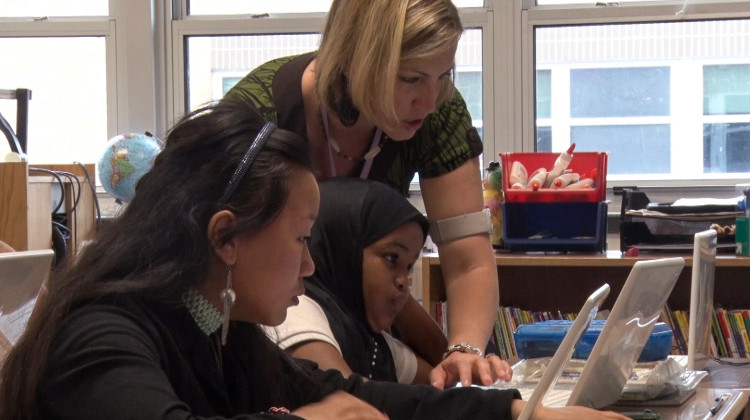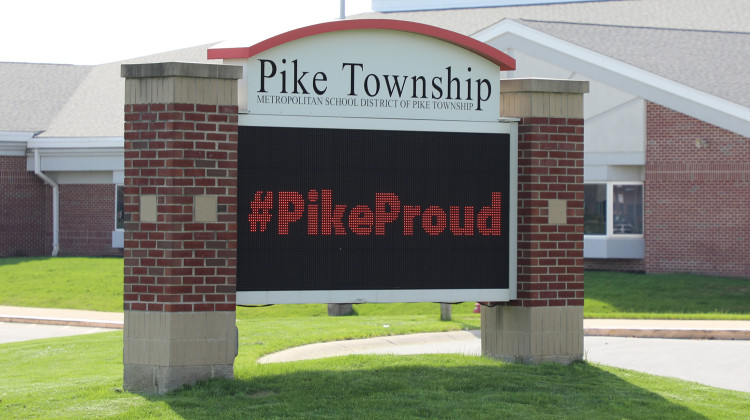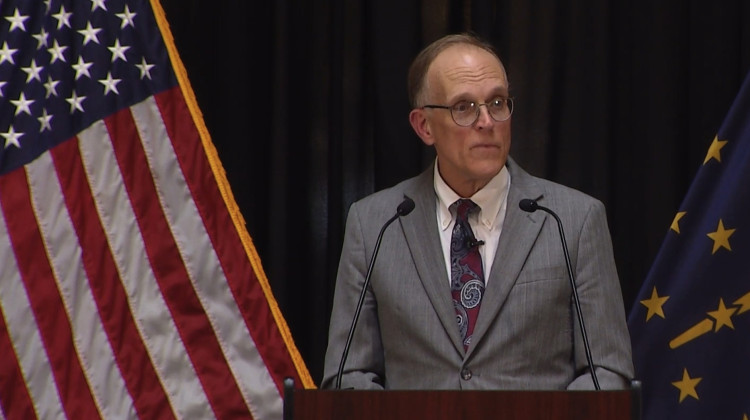
According to the Indiana Department of Education, about 92 percent of teachers in the 2019-2020 school year were white, compared to just more than 65 percent of students.
FILE PHOTO: WFIU/WTIUIndiana’s teachers are much more white than the students they teach – about 92 percent compared to around 65 percent, according to the Indiana Department of Education. The state struggles to recruit and retain educators of color.
Wafa Safi-Hassan had a master’s degree in education administration and years of teaching experience under her belt when she first moved to Indiana and began applying to teaching jobs. The process, however, was more difficult than she expected.
“When I finally did get an interview, it was met with a lot of scrutiny,” she said. “I was asked if I could open up my social media so they can see the things that I posted. I was asked, ‘So tell me, what kind of ideologies are you bringing to the school?’ And I've never been asked a question like that. Like, I'm a science teacher.”
It took Safi-Hassan three years to get a full-time position in a public school. She said her experience is not uncommon for educators of color in Indiana, and those experiences can dissuade quality educators from teaching in the state.
Multiple national studies show that diverse educators benefit students, especially students of color. Safi-Hassan said educators of color can be more understanding toward students from diverse backgrounds because of their own experiences.
“I was the only educator of color in the building at the time. And so those students felt like they could gravitate to me – my Brown students, my Black students, my LGBTQ+ students – because I was different. And I know how it feels to be treated when you're different,” she said.
READ MORE: Want to address teachers’ unconscious biases? First, talk about race
Join the conversation and sign up for the Indiana Two-Way. Text "Indiana" to 73224. Your comments and questions in response to our weekly text help us find the answers you need on statewide issues.
Safi-Hassan said educators also need to feel like they belong. As co-chair of the Indiana State Teachers Association racial affairs committee, she organizes meetings for the Educator of Color Network and she helped plan the first ever ISTA Educators of Color Networking Conference. The network currently includes more than 300 educators from across Indiana.
Safi-Hassan said the state can better retain educators of color by helping them feel like they belong, and that there is still work to do in terms of addressing internal biases, improving teacher programs at universities and encouraging people to develop a better understanding of others.
“As an educator of color, if I was to leave my district, I'm going to study the next district I apply to very hard,” she said. “If I see that they're in the news all the time or I see that there's a racial problem there, that's not a place that I'm going to want to go to. But if I hear that this district puts great effort in social and racial justice and making sure their teachers are trained in implicit bias and are working consciously on not othering and celebrating all of our beautiful students, that's a district I would want to go into.”
Kirsten is the education reporter for Indiana Public Broadcsting. Contact her at kadair@wfyi.org or follow her on Twitter at @kirsten_adair.
9(MDAyMzk1MzA4MDE2MjY3OTY1MjM5ZDJjYQ000))
 DONATE
DONATE








 View More Programs
View More Programs

 Support WFYI. We can't do it without you.
Support WFYI. We can't do it without you.